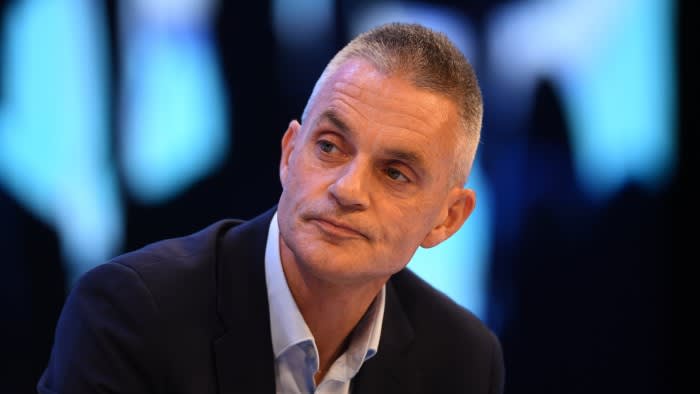
Unlock the Editor’s Digest for free
Roula Khalaf, Editor of the FT, selects her favourite stories in this weekly newsletter.
BBC director-general Tim Davie has called for reform of the licence fee as part of a broader strategy to turn Britain’s national broadcaster into a more commercial operation.
Davie on Tuesday said it was necessary to “ask fundamental questions about the longevity [of the licence fee] in a world that is now full of choice”, as he outlined a wide-ranging plan for ensuring sustained demand for the publicly funded corporation.
“We are not defensive about the future”, he said at an event hosted by the Royal Television Society in London. “We will need reform.”
Davie’s speech comes as the broadcaster contends with huge financial challenges as a result of a government-imposed two-year freeze in the licence fee, which is payable by all households who watch live TV and provides much of the BBC’s funding.
The corporation said it was hit by a 30 per cent real-terms cut in funding between 2010 and 2020, as the licence fee failed to keep pace with inflation, prompting an aggressive cost-cutting programme that slashed some content as well as about 1,800 jobs.
The broadcaster is already trying to cut spending by £500mn a year — including at its flagship news programme Newsnight — and Davie said on Tuesday that it would need to make a further £200mn in annual savings.
Davie cautioned against the BBC moving towards a fully commercial model, saying such a move could compromise the corporation’s editorial objectives.
“We now live in a world . . . where algorithms monetise controversy, driven, understandably, by the necessity to secure traffic as an overriding commercial objective,” he said. “We should not create another commercial walled garden.”
Davie, nevertheless, opened the door to introducing a more progressive licence fee and rethinking the way it is enforced after the current charter expires in 2027. The licence fee is set to rise by £10.50 to £169.50 a year from April.
The increase comes as the BBC battles flagging demand, with UK viewers increasingly likely to opt for streaming platforms such as Netflix over terrestrial TV.
The corporation has said it will seek more partnerships with third parties to boost commercial income, similar to the deal it recently struck with US entertainment group Disney to produce the Doctor Who TV series.
In a pivot away from broadcast-only output, the BBC said it would focus “all [its] commissioning, marketing and social media activity on BBC iPlayer rather than through BBC Three’s linear channel.”
Read More: World News | Entertainment News | Celeb News
FT






